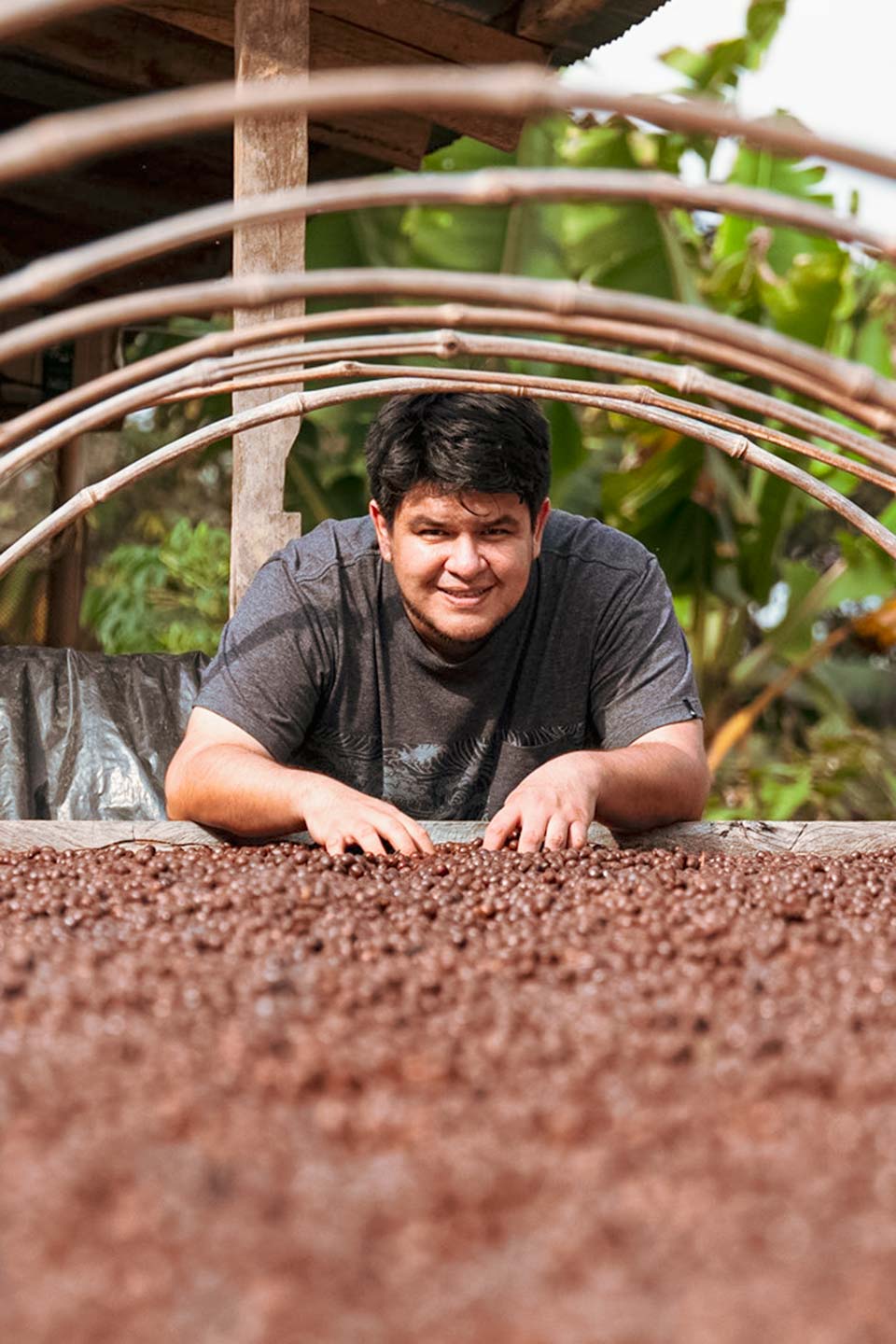
Coffee Origin Revolution Starts with Education
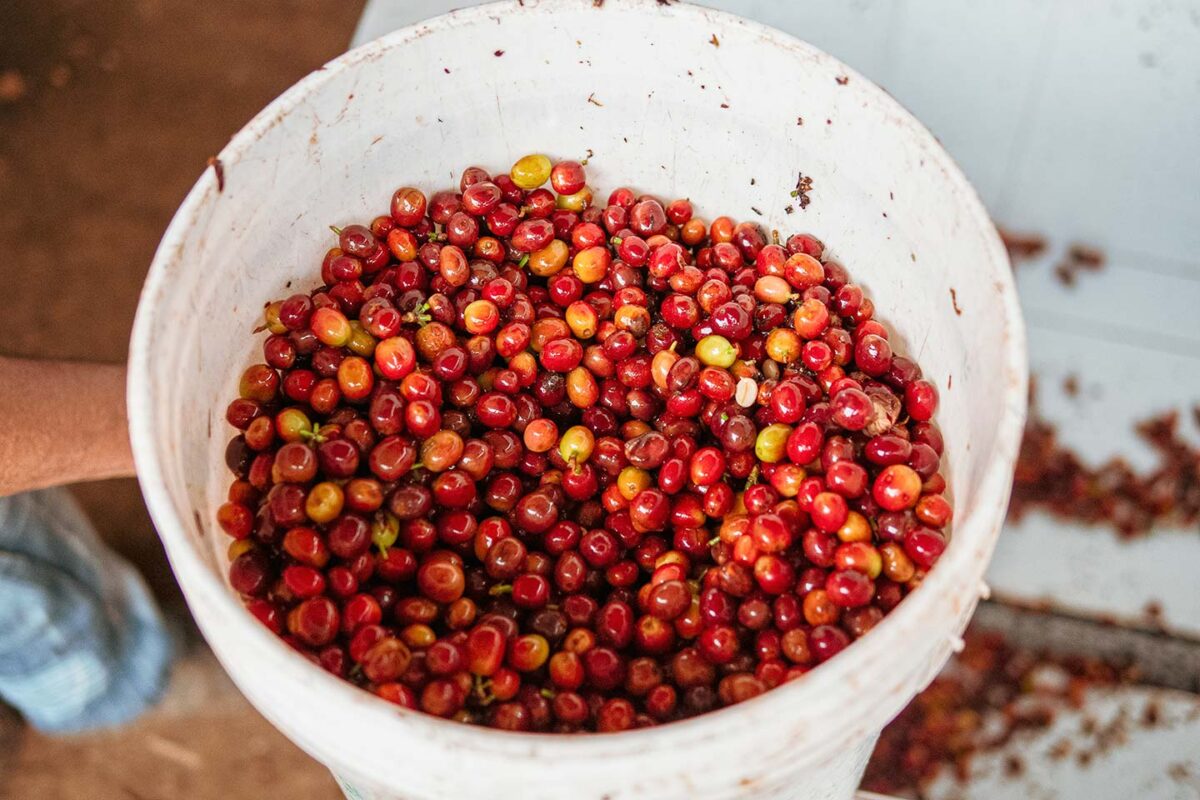
Jose Rivera founded Origin Coffee Lab (OCL) in 2017 in Cajamarca, northern Peru. The company not only exports specialty coffee, but provides farmers with financing and other business know-how. With a focus on helping farmers to earn a stable income, OCL also assists them with quality control and market access, too.
Ensuring consistent quality of the product is at the core of OCL. They do this by dividing coffee producing areas into small groups and keeping micro-lots from each region separate from the rest. The company started with 25 partner producers, but has expanded to 360 as of 2022. Jose used to work as a green bean buyer and roaster for Chicago-based coffee business Metric for five years. We spoke to him to find out what spurred him to leave the job and start out on his own.
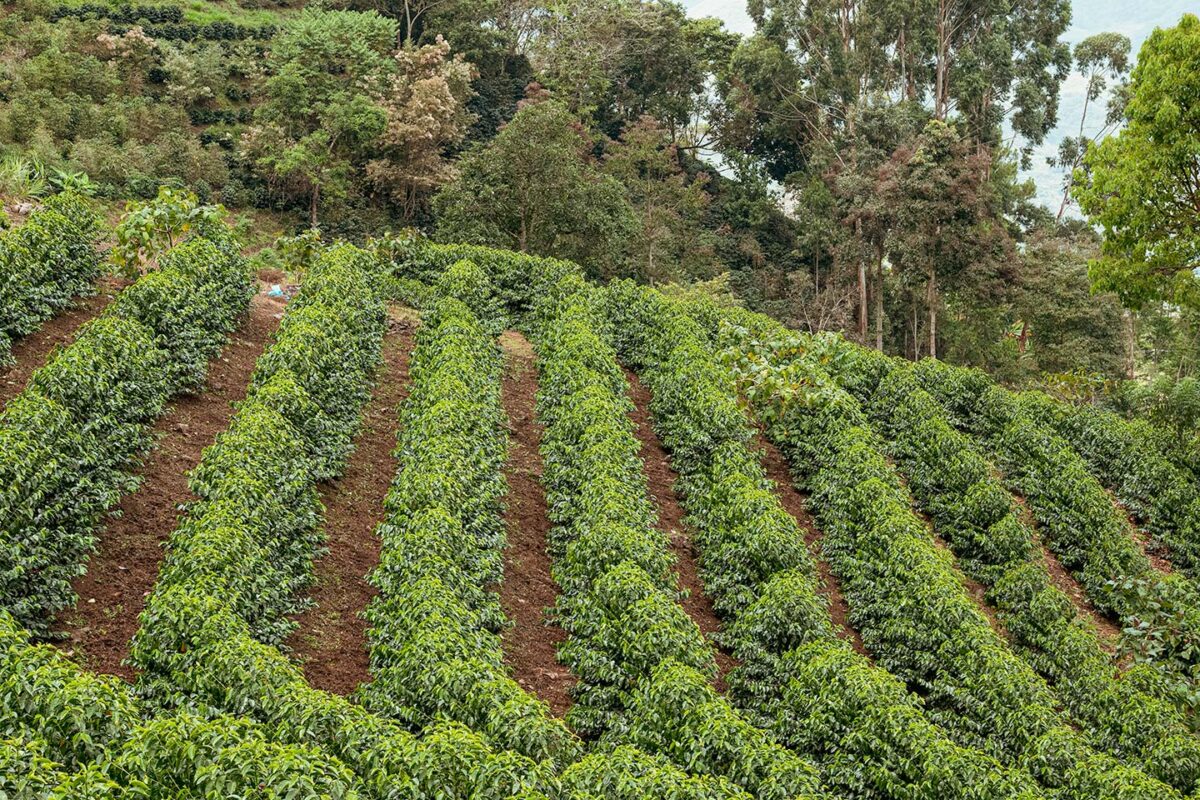
Improving quality of life with knowledge and skills
Peru is the third largest coffee producer in South America after Brazil and Colombia. Of all coffee origins in Peru, Cajamarca is one of the most prominent. A majority of coffee farmers in the region are small-scale. After establishing OCL, Jose started providing agronomy workshops to smallholders. What makes his approach unique is the fact that he focused more on the business aspect of coffee farming than on the quality of the crop. The logic was that if farmers were to earn a steady stream of profit, they would need to learn financing and farm management techniques first. And Jose set out to teach them exactly that over a span of 10 to 20 years.
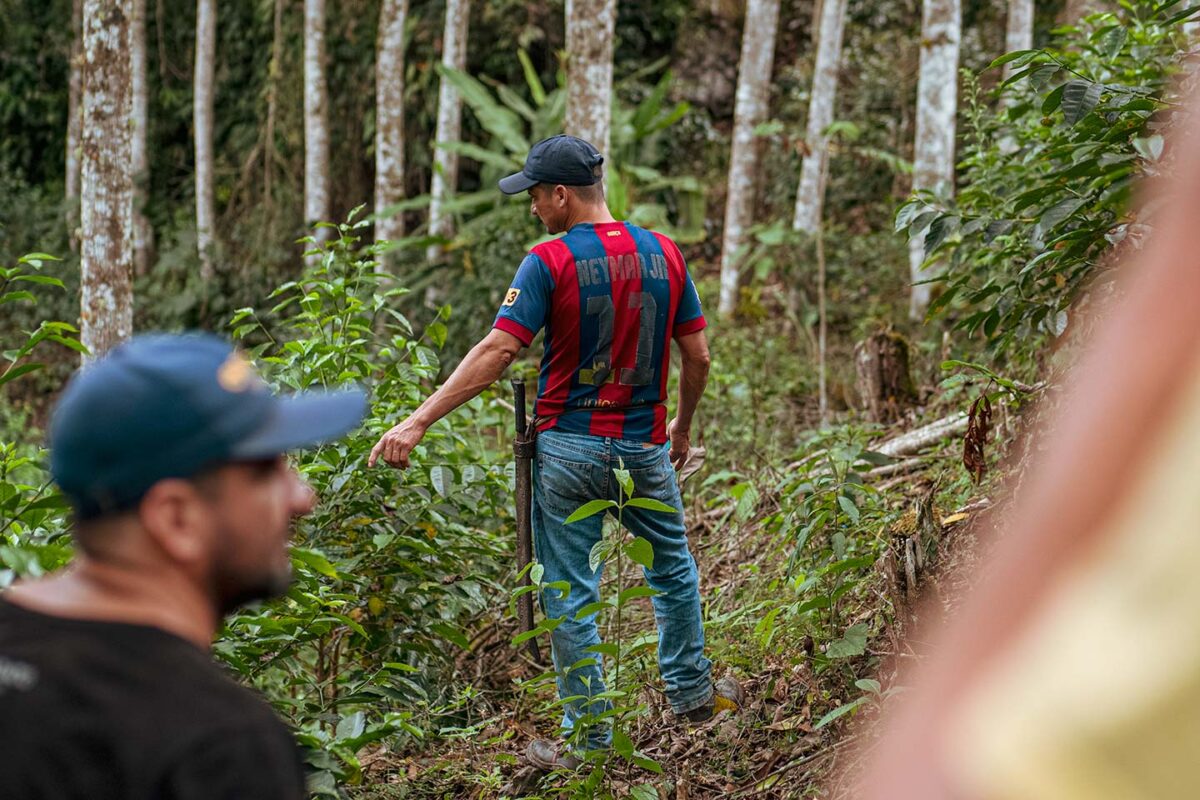
“Imagine you cultivate a nursery for a year. If you concentrate seedlings in one place instead of spreading them out all over the farm, the costs of labor and pesticide will be cheaper. There are countless other farm work that can also be streamlined in this way, such as how you spread fertilizer, how to grow coffee trees, and how you allocate labor.
Knowing the exact cost of coffee production is a must for all coffee producers. Only with that knowledge can they figure out a reasonable profit margin and present an appealing price point for roasters. And then the roasters will be able to buy quality coffee and attract good clients. Some roasters may even decide to continue buying the same coffee every year. It’s been one challenge after another for us, but we managed to convince the farmers to change their way of thinking.”
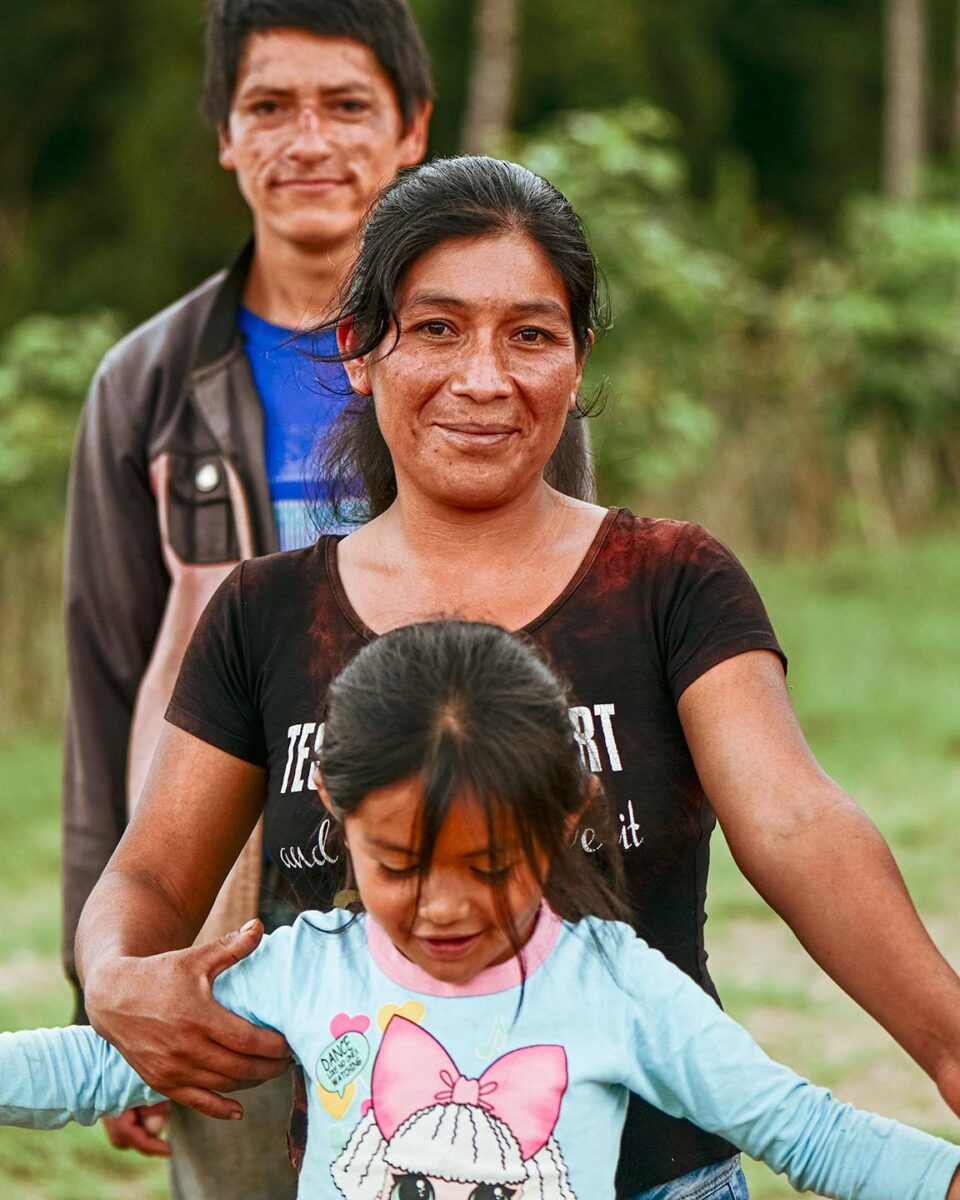
OCL also taught the farmers the importance of choosing their clients. Jose encourages his partner producers to sell their product to someone who is willing to buy it year after year for a good price, rather than selling it to just about anyone. By giving them such a perspective, Jose has helped them to make their coffee production more sustainable and robust as a business, improving the quality of their lives at the same time. In reality, however, many producers aren’t able to make enough income from coffee production alone, so quite a few of them decide to diversify into trout farming, beekeeping, or cacao farming. But this is where Jose sees a problem.
Though Jose does acknowledge that diversification could be an easy way to make a profit, he says it’s not a wise decision. “Of all the crops grown in this region, none can be produced at as much volume and value as coffee. I’m focused on helping the producers to earn enough profit from coffee production alone. If we can’t do that, they will remain trapped in a cycle of poverty.
Here in Cajamarca, boys born into a coffee producing family take over their parents’ farm. When they turn 15 years old, they inherit a plot of land from their parents and start growing coffee there. Then when they grow up, they’ll do the same with their own children. This is how parents’ poverty is passed onto their children. And education is the key to ending this cycle.”

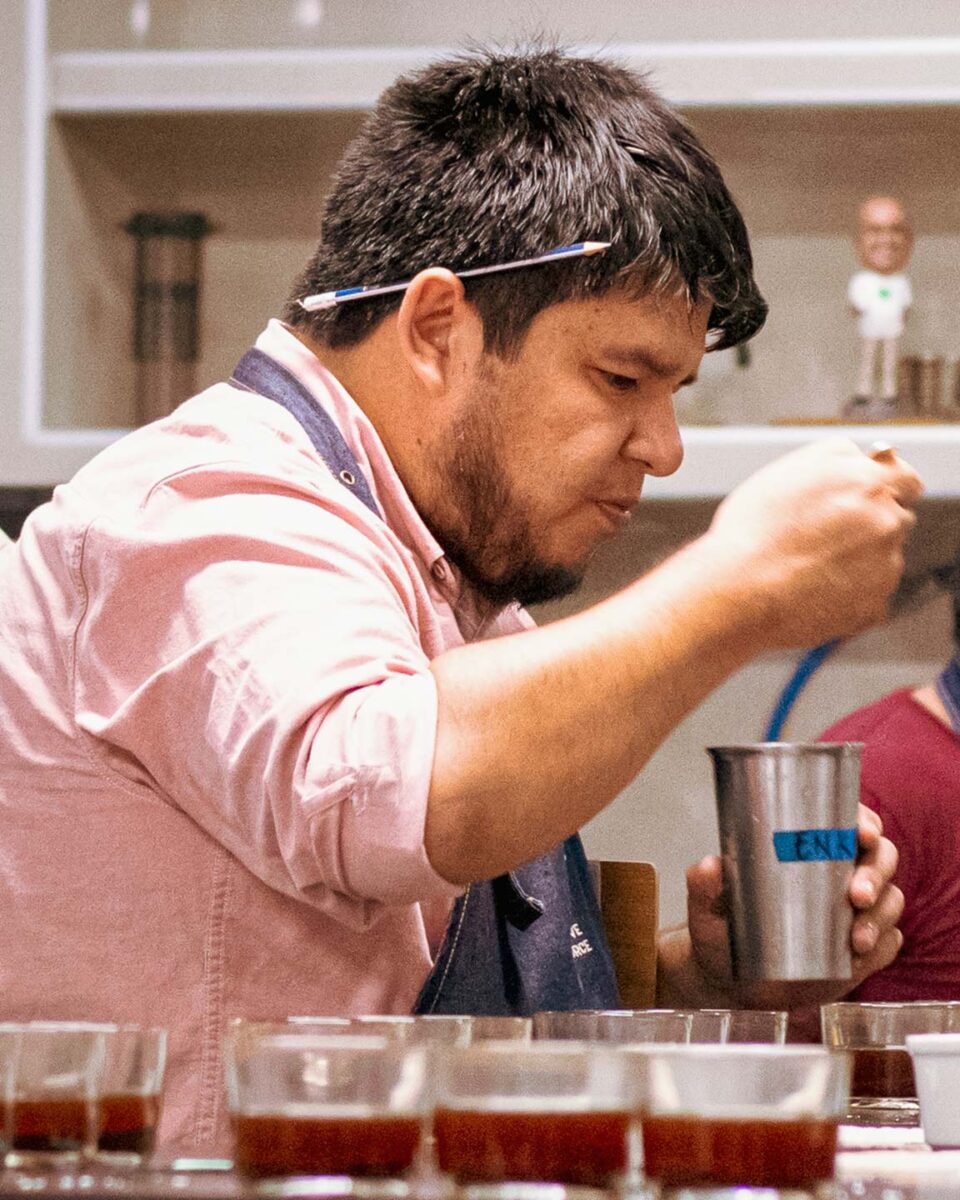
To gain recognition Peruvian coffee deserves
Jose’s father used to work for a coffee trading firm and coffee producers’ associations. So Jose spent his childhood in Switzerland and the Netherlands. Through his experiences overseas, Jose naturally became interested in coffee production and poverty back home in Peru.
“One day, I realized that the lives and well-being of coffee producers hadn’t changed at all. As someone living in Europe, every time I came home to Peru, I wondered why they were not taking any action to improve their lives. When I was in my late teens, it dawned on me that they probably saw their situation as normal. There are many paths to take in coffee farming. They just didn’t realize they had other options. If they had known that, they might have been able to sell their product for a far better price by gaining fair-trade or organic certificates, for instance.”
After a while, Jose received coffee training at US-based Intelligentsia, one of the pioneers in specialty coffee. He went on to land a position at Metric, a Chicago-headquartered coffee company where he was in charge of buying green coffee and roasting the beans. While the job was fulfilling, Jose did experience some setbacks, too. One of them was the surprisingly poor reputation for Peruvian coffee among buyers. In fact, Metric, his employer at the time, wasn’t using any Peruvian coffee, either.
“It hurt to see that no one was interested in the quality of Peruvian coffee. Every buyer I talked to would tell me how bad it tasted. I wish I could’ve told them they were wrong and Peru had amazing coffee just like Central America, Colombia or Africa do.”
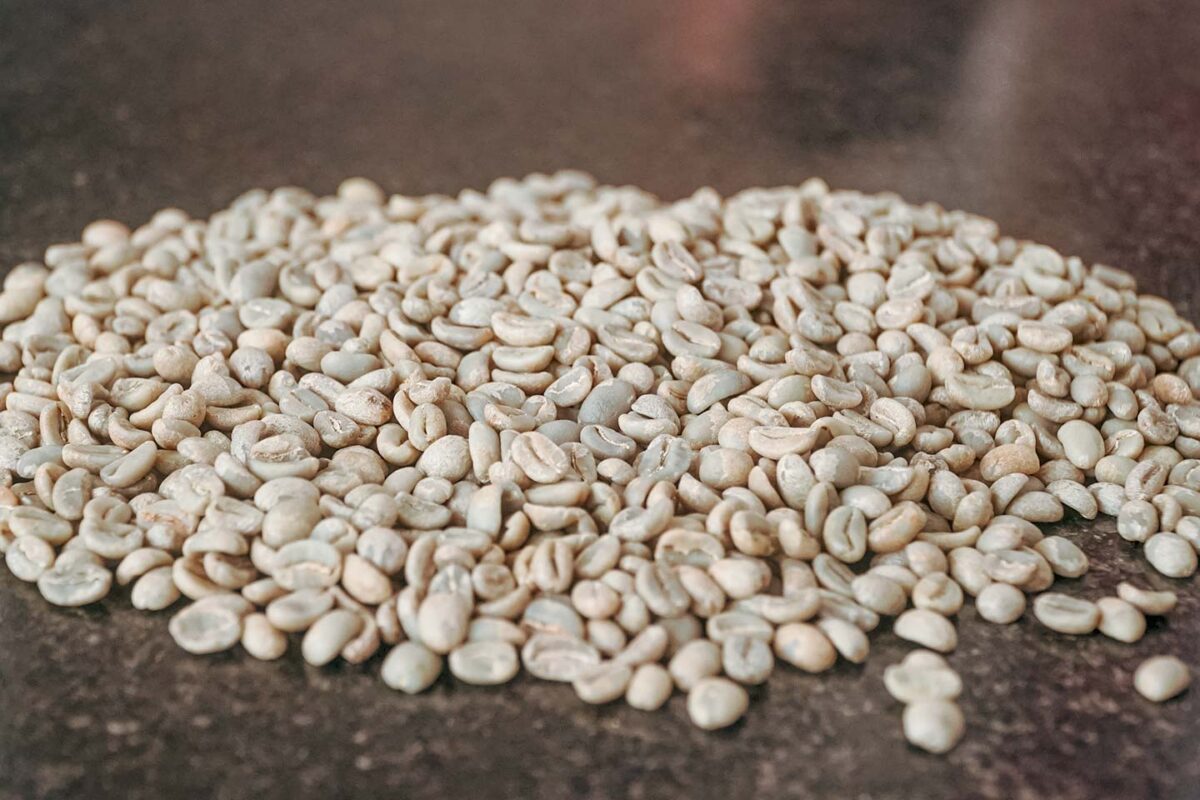
To change people’s perception, Peruvian coffee needed to shed its stigma, and Jose stepped up to the challenge. He started by submitting a Peruvian coffee to Good Food Awards, a coffee quality contest in the US. Though it was his first participation in the event, he made it to the finals, coming in second place. With Ethiopian coffees dominating the top of the rankings, his Bourbon coffee from Peru suddenly became the talk of the coffee industry.
“I was quite well-known in the American coffee industry. And all of a sudden, many of my friends started to praise Peruvian coffee for its flavor and unique qualities. Some of them even started buying coffee from Peru. This shows just how much of an impact good quality can have on the reputation of a product.”
To further empower coffee producers back home, Jose quit Metric and established OCL in 2017. His main focus was on creating direct relationships between farms and roasters so that the farmers can earn a fair share of the value their product generates and eventually escape a cycle of poverty. And his first client was Metric.
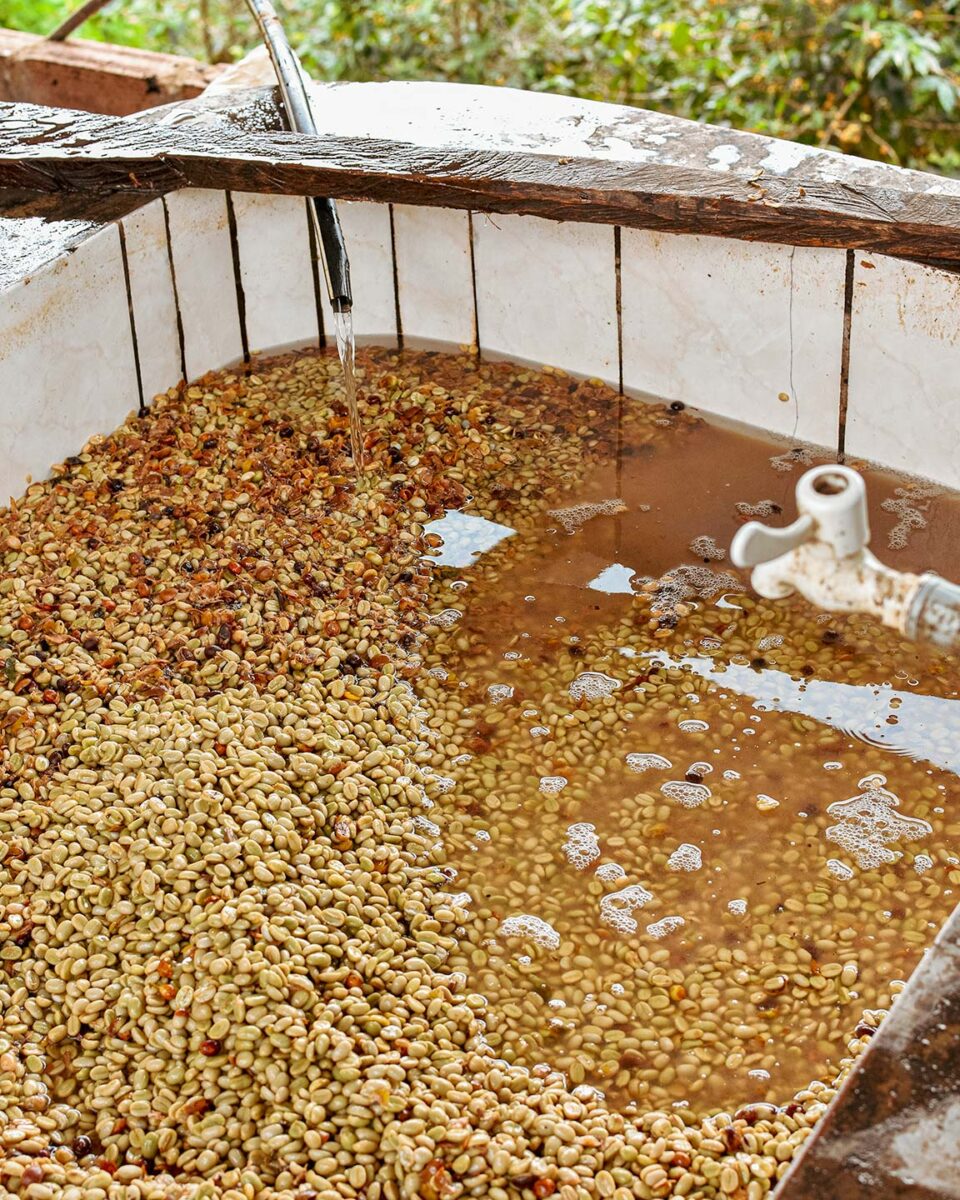
Direct trade not panacea for poverty
The start of Jose’s venture coincided with a plunge in commercial coffee prices. To support his partner producers’ livelihoods, Jose bought their specialty crops for almost double the market price at the time.
“I was happy doing what I did. It made me proud when people recognized how much I was contributing to the lives of the producers.”
But Jose began to realize that direct trade alone couldn’t eradicate coffee producers’ poverty. Although he expected that his business model would help producers to earn three times what they used to, their profits remained more or less the same. As it turned out, the problem was that as their income increased, so did their expenditure, canceling out whatever extra revenue they were bringing in.
“That was really frustrating. But that’s just the way it is when you are trapped in a cycle of poverty. Coffee farmers don’t have the education or financial knowledge needed to participate in the market by themselves. The fundamental problem is the lack of knowledge and discipline to manage funds effectively.”
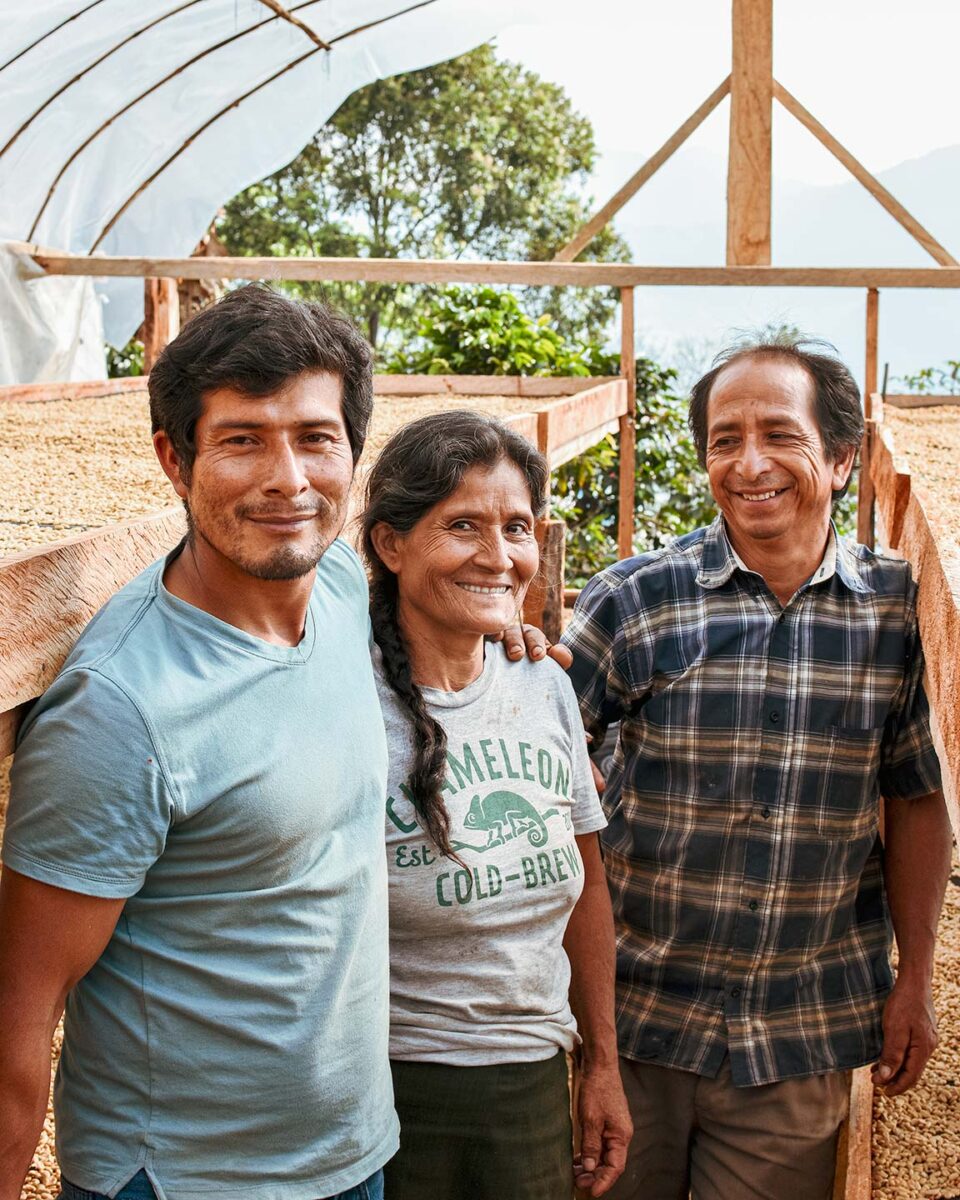
Ever since, Jose has focused on increasing the producers’ profit margins. It’s not that he denies direct trade. It’s that he is aware that current industry reforms aren’t enough to eradicate poverty and bring more transparency to the supply chain.
“To work together with coffee producers, I need to get a better understanding of who they are and where they are from. I need to know their history, culture and tradition. Nowadays we have fair-trade and all other certificates. I believe people who created them had a lofty ideal. But times change, and so must we. We have to stay active because the problems and needs we have on our hands right now are different from before. It’s like a bicycle. Once you stop, you fall off. So you have to keep moving forward. You have to keep changing and evolving every year, or every day for that matter.”

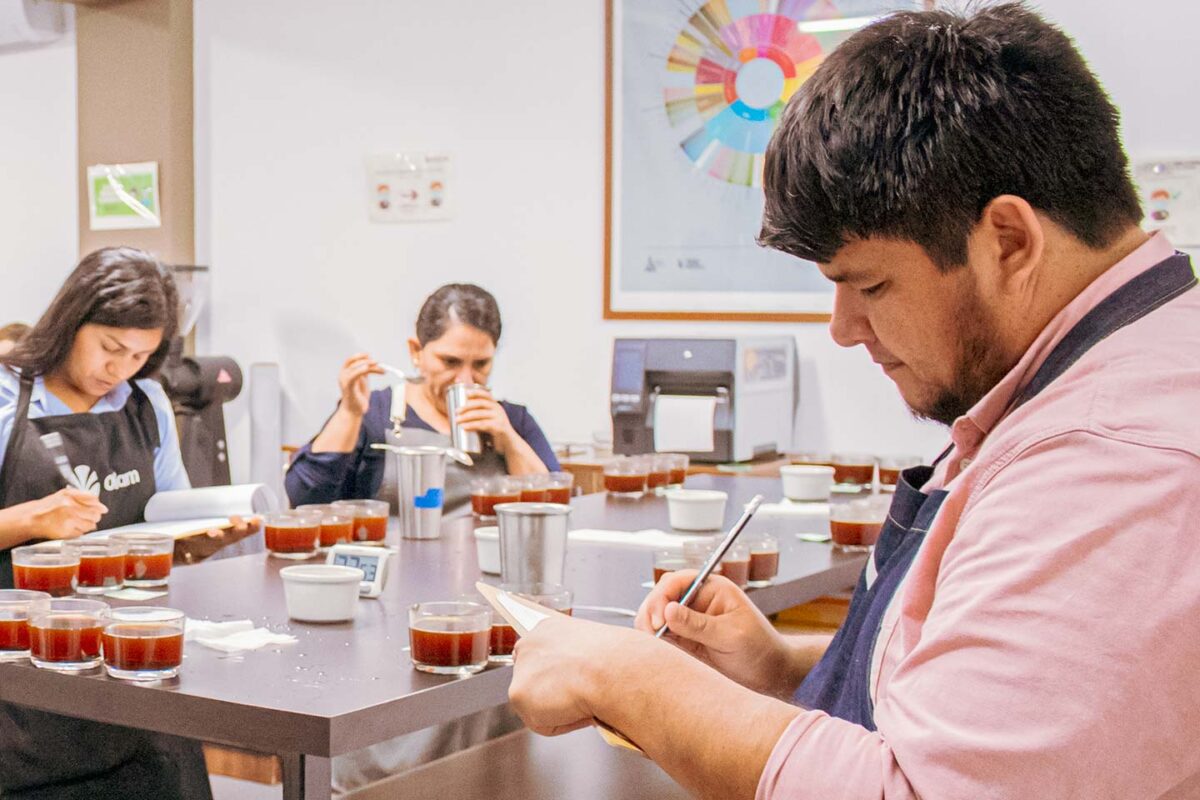
Beginning of revolution
Since he established OCL, Jose has always bought directly from producers and cupped all their crops. Such practices weren’t common back then, and his local peers were often skeptical, telling him that it was crazy to go to such lengths. But after a year, other businesses started to follow suit, setting up quality control facilities in Peru. Even globally famous green coffee traders, such as Falcon Coffee and Caravela, established branches in Cajamarca. Smaller companies from Europe and Colombia also expanded into the area.
“If I hadn’t started OCL, no one would’ve thought to cup coffee from this region. I’m sure there are many more things I can do. But for now, I’m glad and proud to see how much Peru’s specialty coffee market has changed.”
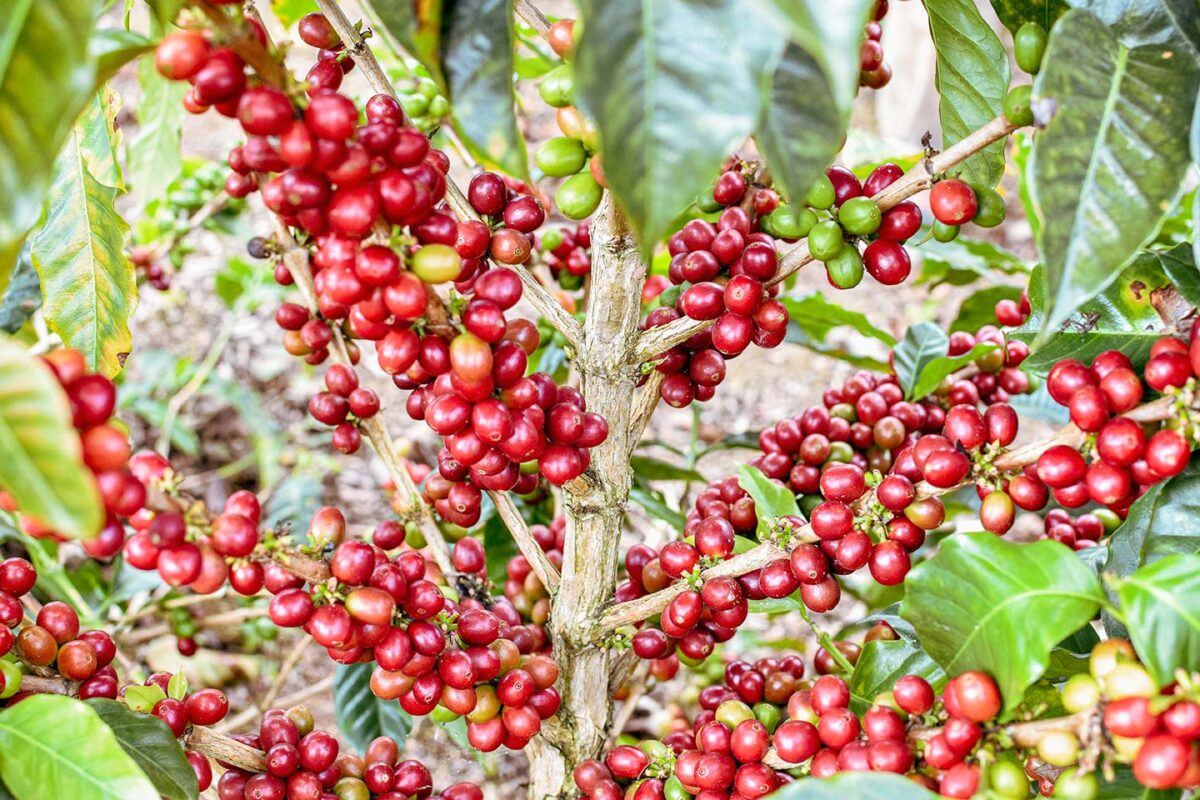
With their focus on improving the quality of the lives of coffee producers, OCL has won over 360 farmers today. The company’s strength lies in their unique sales channels and price structures. Sometimes, members of farmers’ cooperatives ask to join OCL. When they do, Jose runs it by their cooperatives before starting a partnership.
Some of his partner producers have started to shift their focus from Catimor to more profitable varieties like Bourbon and Cattura. Geisha is becoming increasingly popular, too. Growing only Geisha may not necessarily be a good business decision, but at least it shows that farmers have begun to notice the importance of quality.
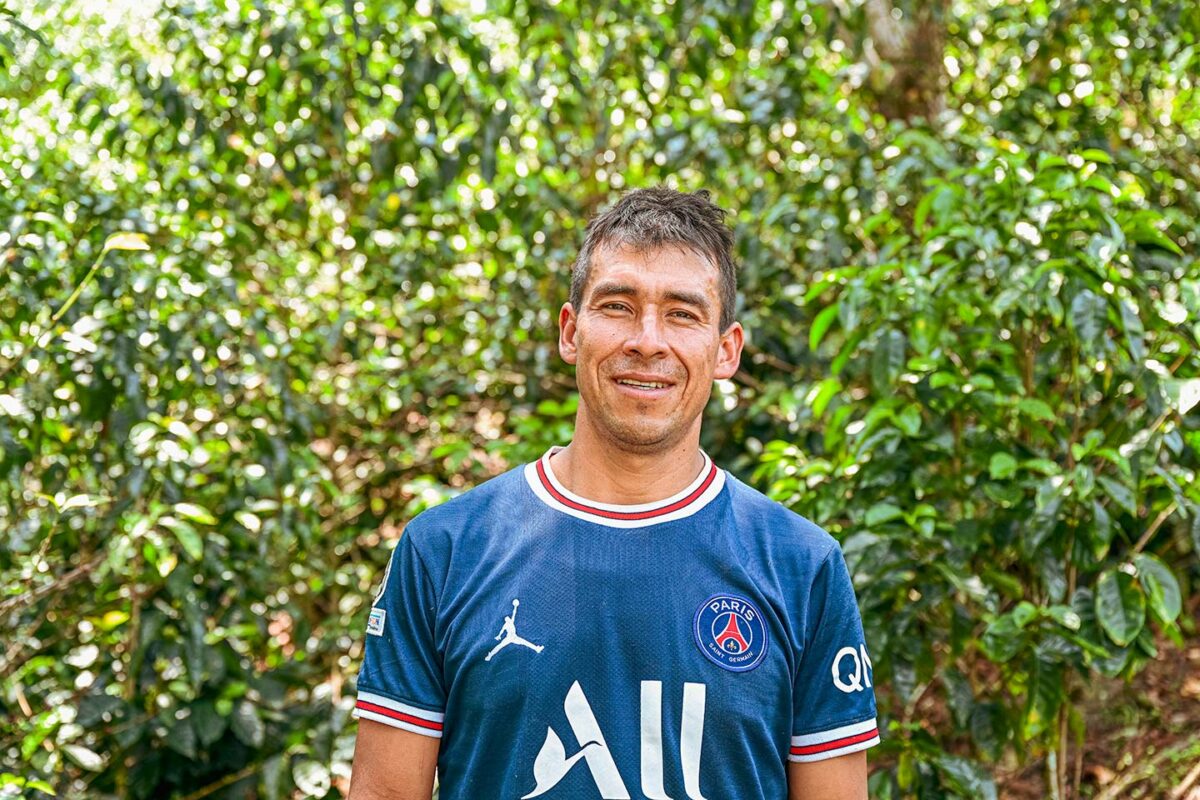
“In the past five years, more and more producers have been able to live independently with earnings from coffee production alone. I’ve been able to shift my attention to next stages like how to filter drinking water and labor management. And as their lives have changed, people around them have also started to notice that opportunity is right there if they reach for it. That’s a positive impact. It’s a testament that OCL has changed the producers’ mindset and working styles.
Peruvian coffee has gained a good reputation. But it’s still lesser-known compared with Colombian coffee. But that also means Peru has more hidden potential to produce great coffee. There are a ton of challenges we have to overcome. But I’m sure we can do it. After all, we are only at the starting line of a revolution.”
Text: Takuya Takemoto









